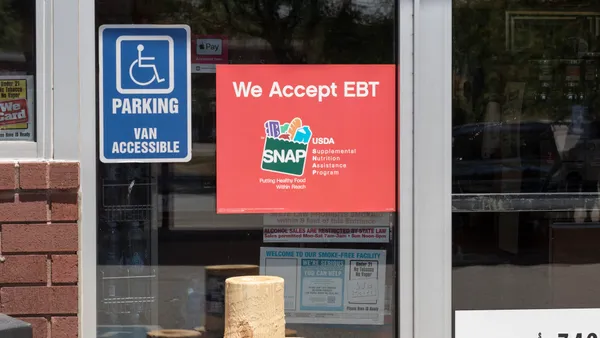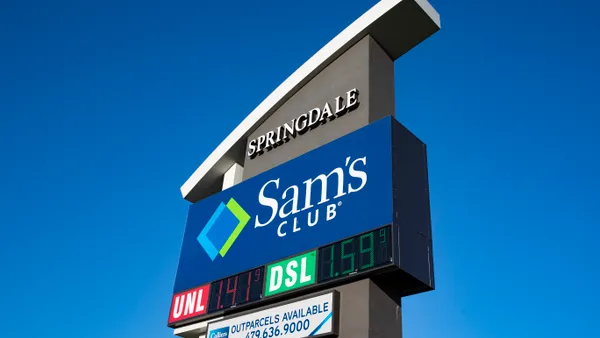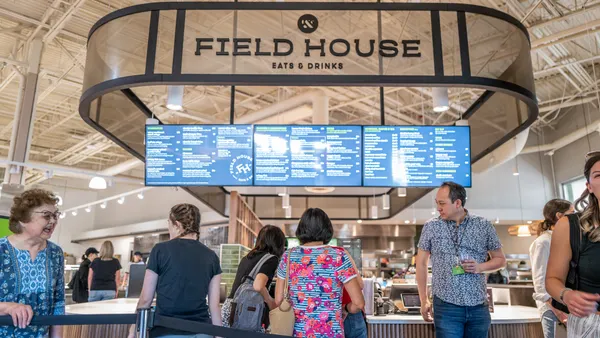Dive Brief:
- According to two marketing experts writing in the Harvard Business Review, to fight the expansion of discount retailers like Aldi, U.S. supermarkets need to improve the pricing and quality of their store brands.
- "In the U.S., the road ahead for established supermarkets will be difficult," writes Marcel Corstjens, the Unilever Chaired Professor of Marketing at Insead, and Rajiv Lal, the Stanley Roth Sr. Professor of Retailing at Harvard Business School. "U.S. retailers are far behind in terms of their private-label product offerings, which will be a huge challenge in the fight against Aldi and Lidl."
- Last year, ALDI announced that it plans to open hundreds of new stores across the country, giving it more than 2,500 locations in the U.S. by 2022. It's also remodeling existing stores with fresher assortment, and recently announced plans to add 20% more new products to stores. Meanwhile, Lidl's store growth has slowed and the company has not updated its expansion plans for the U.S. It currently operates around 60 stores along the East Coast.
Dive Insight:
If retailers look to Europe for lessons on how to handle this explosion of discount retailers, they will see a cautionary tale. Today, Aldi and Lidl have 13.1% market share in the UK, having grown more than 50% over the last five years. In France, hard discounters have made significant headway and now control 12% share of the grocery market.
However, according to Corstjens and Lal, unlike the UK where market share is growing, in France that market share has been declining since 2009 thanks to grocers’ savvy deployment of private label products. The solution, the writers note, was not to sell more private label — discount retailers sell 90% private-label — but to sell it better by lowering price and increasing quality.
In England, large retailers are trying to follow a similar path. Tesco just opened a new chain called Jack's — after company founder Jack Cohen — that features store brands at prices that are competitive with Aldi and Lidl.
But do grocers in the U.S. need to mount a similar discounter-specific response? Do they need to fight back with deeper private label investments and separate store formats?
Some already are. Kroger's Ruler Foods, Walmart's Neighborhood Market banner and Whole Foods' 365 stores are all stores that address value-minded shoppers. Meanwhile, across the industry grocers are boosting store brands, with sales of private-label brands surpassing those of manufacturers' brands, according to a Nielsen report cited by Food Navigator.
The argument that U.S. grocers aren't selling high enough quality store brands falls flat in many places. Kroger sells more than $20 billion worth of store brands each year, including $2 billion through its Simple Truth natural and organic line. Walmart is rolling out premium brands, while others like Southeastern Grocers are developing offerings tiered according to price and quality.
Consumer loyalty to national brands also shouldn't be discounted. Marketing firm Catalina, for one, finds that American shoppers may be hard to convince to leave their habits behind. Marta Cyhan, Catalina’s head of marketing, wrote in an email to Food Dive that "name brands represent a competitive advantage for traditional grocers … when competing with retail models that emphasize private labels.”
Still, consumer trends and operational advantages are increasingly lining up in discounters’ favor. Consumers are spending more than ever on store brands, and more than half of all shopping trips are quick trips to snag just a few items, according to IRI — the sort of trips that are conducive to small stores and smart prices.
Traditional grocers are focusing more on fresh and prepared foods — but even here, they may be vulnerable to discounters. Among Aldi's new products are numerous grab-and-go meals and snack selections, including cilantro lime chicken breasts and single-serve guacamole. As grocers continue to evolve, they can bet that discounters will continue to evolve, as well, making them one of the greatest competitive threats conventional retailers face.










